We are thrilled to be part of these recent news stories! Social Thinking stands committed to providing quality, practical information that is rooted in research, built upon real-world experiences, and is responsive to the needs of the people who use our materials and those who teach it.
For more than 25 years Social Thinking has been a guiding resource for schools, clinics, and families around the world, and our teachings continually evolve based on the latest research and clinical insights. Michelle Garcia Winner, MA, CCC-SLP, founder of Social Thinking, is a leading expert in her field and has received many awards for her groundbreaking work.
Social Thinking has developed social, emotional, and academic learning strategies for 25+ years. Our teachings help engage people in social learning, not only about themselves but about others. Social Thinking does this by developing evidence-based strategies that help people ages 4 through adult improve their social competencies, including: self-regulation, executive functioning, perspective taking, friendship & relationship development, and social problem solving. While our deeper work is for individuals with social learning differences (ADHD, twice exceptional, social communication disorders, autism spectrum levels 1 and 2, etc., or no diagnosis) a subset of our work has been adopted into mainstream classrooms and workplaces around the world to support and improve social learning for all.
Resources by Age
Teaching people social learning concepts & strategies for more than 25 years to help them reach their social goals, whether Neurodivergent or neurotypical.
Recent Media Coverage
SLP Full Disclosure

Join host Michelle in this engaging episode of SLP Full Disclosure as she welcomes the Michelle Garcia Winner. Together, they take a deep dive into the vital role of social competencies in effective communication and explore how Social Thinking goes beyond traditional social skills training to address emotional awareness and social observation.
Seesaw

We’re excited to announce our new partnership with Seesaw, a leading interactive education platform! By teaming up, we’re combining teaching strategies from the Social Thinking Methodology with Seesaw’s dynamic learning tools to create an engaging educational experience for students and educators.
Teachers Pay Teachers

Social Thinking has recently opened an official Teachers Pay Teachers Storefront! You’ll find Superflex expansion lessons, including UnthinkaBots not found anywhere else. We are adding new content every month so check us out and follow our store updates!
WOSB

Social Thinking is federally recognized by the Small Business Association (SBA) as a Women-Owned Small Business (WOSB). All state and federal contracts are welcome.
Adelaide Fringe Festival artist Mali Isabel using art to help teach self-regulation at Carlton School
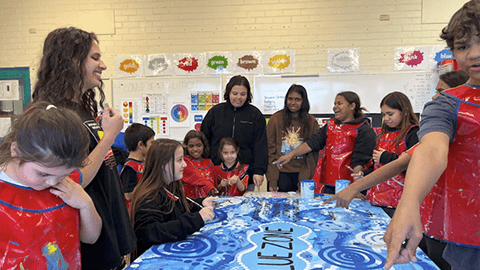
September 2023 ABC North and West SA / By Isabella Carbone
Read how artist Mali Isabel, known for the 2022 Adelaide Fringe Festival poster, helped Aboriginal children develop emotional literacy using The Zones of Regulation.
Friedreich's Ataxia News - Recalibrating Column

The article discusses how schools have integrated social and emotional learning programs, such as The Zones of Regulation, to equip students with tools for navigating challenging situations. The author shares their experience implementing The Zones of Regulation system at home, creating designated Zones with helpful tools. The article emphasizes the benefits for children with chronic illnesses and highlights the positive impact of occupational therapy (OT) in supporting daily living activities and building skills for independence.
Using Social Thinking in the Mainstream Classroom
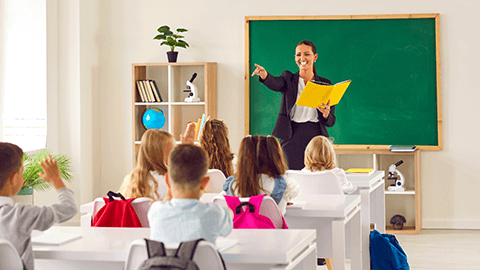
The Social Thinking Methodology originated in schools more than25 years ago in response to a lack of practical ways to explain different aspects of the social-emotional world to both neurotypical and neurodivergent students. Michelle Garcia winner, the founder of the Social Thinking Methodology, continues to update core strategies and tools in response to ongoing and valuable input from individuals with a range of social learning differences, disabilities and/or difficulties, as well as from mainstream teachers and learning specialists. Dr. Pamela Crooke joined forces with Michelle almost 17 years ago to further evolve components of the methodology. Tools from the Social Thinking Methodology have found their way into inclusion-based or mainstream classrooms since ALL students can benefit from a common vocabulary and understanding of the social and emotional world together.
Washington Post Article

Heading into a new school year, it is essential for parents to prioritize helping their children make and maintain friends. Ryan Hendrix, a speech and language pathologist specializing in social cognition and communication, underscores the complexity of forming friendships, referring to it as a "social executive function task."
Autism Knows No Borders Podcast

Discover what’s possible when we relate through emotions. In this podcast, Michelle Garcia Winner, Founder and CEO of Social Thinking discusses: grouping students based on social needs rather than diagnostic labels; how to support and improve social competencies; why small talk is embedded in most social situations; navigating the dating world; maintaining friendships; and tips for autistic people going into a job interview.
Peer Reviewed Article
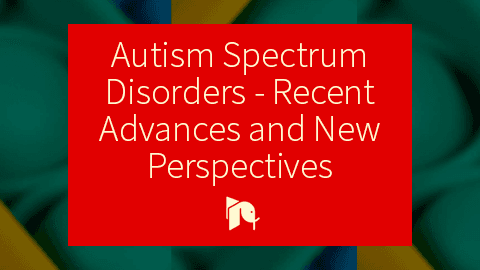
Some researchers and intervention developers are seeking to update historical practice, to reflect the neurodiversity paradigm, respect neurodiversity, and acceptability of approaches to supporting social understanding to the neurodivergent community.
Today's Parent

With six kids at home, it's no wonder James Van Der Beek has some savvy tricks in his parenting arsenal. The trick definitely calls to mind The Zones of Regulation, a framework and curriculum that educators use to help kids identify and regulate their feelings by attaching colors to different emotions.
ADDITUDE
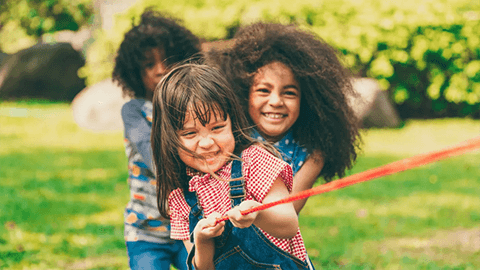
In this audio webinar “Social Success Strategies: Helping Your ADHD Child Make Good Friends," Michelle Garcia Winner, MA, CCC-SLP discusses thinking socially and why it’s important, how to improve social skills, awareness, and problem solving, and ADHD-friendly techniques for paying attention.
Edutopia
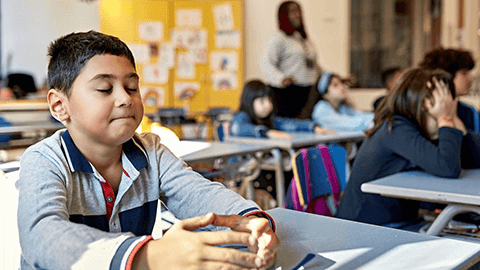
Learn how a school counselor uses Social Thinking's Size of My Problem framework in her school's Wellness Wednesday initiative, which establishes weekly goals for taking a breath, finding moments of mindfulness, slowing down, resetting, and recharging.
Therapy on the Cutting Edge
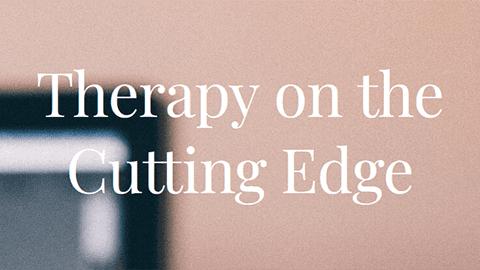
In this episode, Michelle talks about her Social Thinking work and discusses her career working in an autism spectrum clinic, working with adults with brain injuries, working in a high school, and later starting her own clinic.
Seminars in Speech & Language
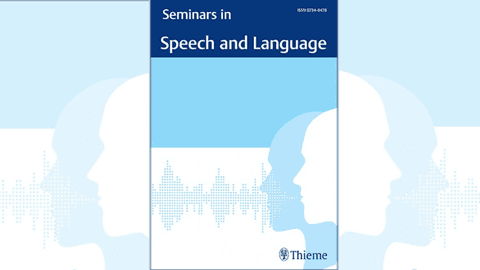
This article highlights how social and emotional learning is embedded in many academic standards and how speech-language pathologists can use the Social Thinking–Social Competency Model to better understand the unique strengths and needs of individual social learners and describe the relationship to academics.
Recognition & Awards
Award from the Society for Developmental and Behavioral Pediatrics
Lectureship Award, 2019
Michelle Garcia Winner, a speech-language pathologist MA, CCC-SLP and the founder of the Social Thinking Methodology, was honored to receive the Lectureship Award from the Society for Developmental and Behavioral Pediatrics (SDBP) at their Annual Meeting in Washington D.C. in September 2019. The SDBP Lectureship Award honors an individual who has made a significant contribution to the field of developmental and behavioral pediatrics.
At the meeting, Michelle presented a keynote address on the Social Thinking-Social Competency Model and breakout session on social anxiety management to an interdisciplinary audience of clinical psychologists and nurse practitioners in addition to the developmental and behavioral pediatricians. Michelle enjoyed teaching and sharing ideas with attendees. One pediatrician told her after the meeting, “This information is so important, it should be taught everywhere.” SDBP advocates for an integrated approach to the biological, psychological, social, educational, and cultural influences on children, youth, and their families. As the leading voice for interprofessional developmental and behavioral pediatric care, the mission of SDBP is to improve the health and well-being of children and families by promoting high quality research, education, advocacy, and practice.
Ron Suskind Introduces Michelle Garcia Winner
Michelle Garcia Winner, author and founder of Social Thinking®, specializing in the in the teaching and support of individuals with social learning differences and/or challenges, is honored by Ron Suskind at the John Pratt Memorial Lecture.
The John Pratt Memorial Lecture is dedicated to facilitating the impact of research on practice at the Ivy Street School in order to improve student outcomes.